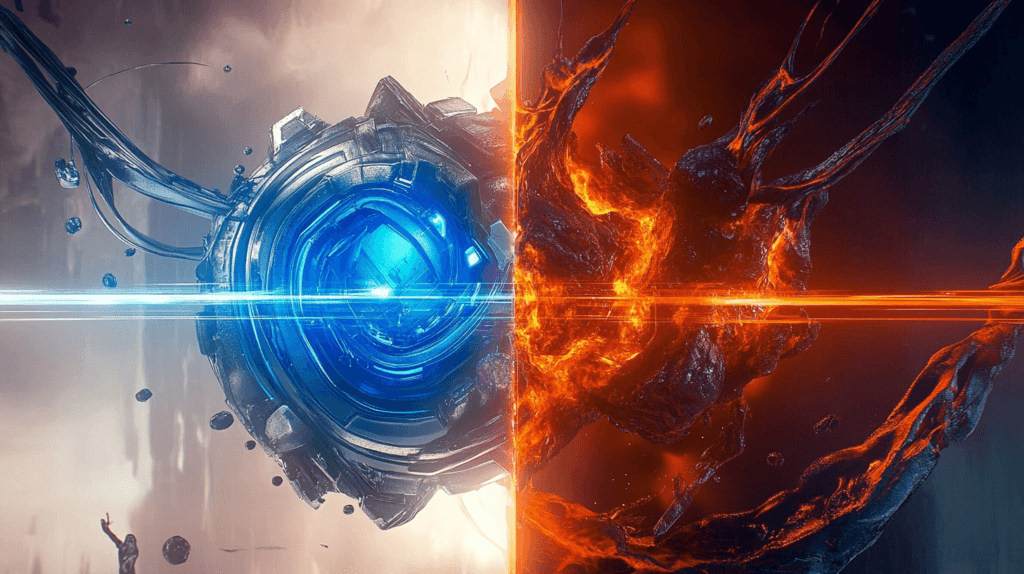AI and Nietzsche’s Apollonian and Dionysian Duality

Nietzsche, the provocative 19th-century philosopher, framed human creativity and existence as a tension between two forces: the Apollonian and the Dionysian. These archetypes, rooted in the Greek gods Apollo and Dionysus, are not just ancient myths—they are the frameworks through which we can understand the systems we build and the mistakes they make.
The Apollonian: Order, Logic, and the Illusion of Perfection
Apollo, the god of light and reason, symbolizes humanity’s pursuit of structure, clarity, and control. The Apollonian reflects:
- Rationality and precision.
- The drive for perfection and stability.
- Boundaries and ideals that contain chaos.
Artificial intelligence is the ultimate embodiment of Apollonian ideals. Its algorithms rely on logic, its code demands precision, and its design strives for flawless order. AI operates in this clean, structured realm, where data inputs are controlled, and outputs are expected. The self-driving car navigates predefined roads. The predictive model forecasts outcomes based on historical patterns. In this world, error is seen as failure—an aberration to be eliminated.
But perfection, Nietzsche warned, is an illusion. The Apollonian world may look pristine, but it is a fragile construct. Beneath its polished surface lies a force AI cannot escape: the chaos of the Dionysian.
The Dionysian: Chaos, Creativity, and the Limits of AI
Dionysus, the god of wine and revelry, represents the untamed forces of life—emotion, spontaneity, and unpredictability. The Dionysian:
- Accepts disorder and imperfection.
- Thrives in ambiguity and raw instinct.
- Disrupts the illusion of stability.
AI encounters the Dionysian every time it faces the real world. Unlike the structured Apollonian environment, reality is messy and chaotic. Data sets are incomplete, scenarios are ambiguous, and human behavior defies prediction. A self-driving car navigating chaotic urban traffic doesn’t just fail to process the unexpected—it reveals the limits of order when faced with life’s unstructured realities.
AI’s Mistakes: Cracks in the Apollonian Facade
AI’s failures are not just glitches—they are ruptures where chaos pierces the structured veneer of algorithms. A recommendation system suggests bizarre products because it cannot reconcile user behavior with its training. A language model confidently generates falsehoods, exposing its reliance on patterns rather than truth. These mistakes reveal more than technical limits; they uncover the impossibility of fully encoding life’s unpredictability into systems of logic.
Nietzsche understood this tension. The Apollonian seeks to mask chaos, but the Dionysian exposes it. AI’s failures are not separate from its function—they are intrinsic to its existence. They remind us that intelligence, whether human or artificial, cannot escape the dynamic, messy nature of reality.
Creation Through Chaos: Nietzsche’s Übermensch and AI
For Nietzsche, chaos was not the enemy—it was the crucible of transformation. He saw it as the birthplace of the Übermensch, the individual who transcends conventional values to create new ones. AI’s mistakes, in this light, are not failures but sparks of potential. They challenge us to rethink perfection and embrace imperfection as a source of growth.
Consider these possibilities:
- A neural network’s errors in image generation lead to entirely new art styles, inspiring human creativity.
- An AI system’s unexpected anomaly reveals overlooked patterns, sparking innovation in medicine or science.
- A biased algorithm forces society to confront systemic flaws embedded in its data, driving ethical and social change.
Nietzsche’s wisdom echoes here: “One must still have chaos in oneself to give birth to a dancing star.” Perhaps AI’s mistakes are our dancing stars—not obstacles but catalysts for creativity, insight, and evolution.
The Future of Chaos and Order in AI
As AI systems grow more complex, the interplay between Apollonian control and Dionysian chaos will only intensify. Will we design systems that strive to eliminate mistakes entirely, or will we embrace the unpredictability of failure as a path to discovery?
In this dance between code and chaos lies not just the future of AI but the redefinition of what it means to create, to think, and to be intelligent. Nietzsche’s dichotomy, far from being confined to philosophy, is now a living tension shaping our technological age.
Pingback: Code and Chaos – AI Mistakes - Fragments of the Machine